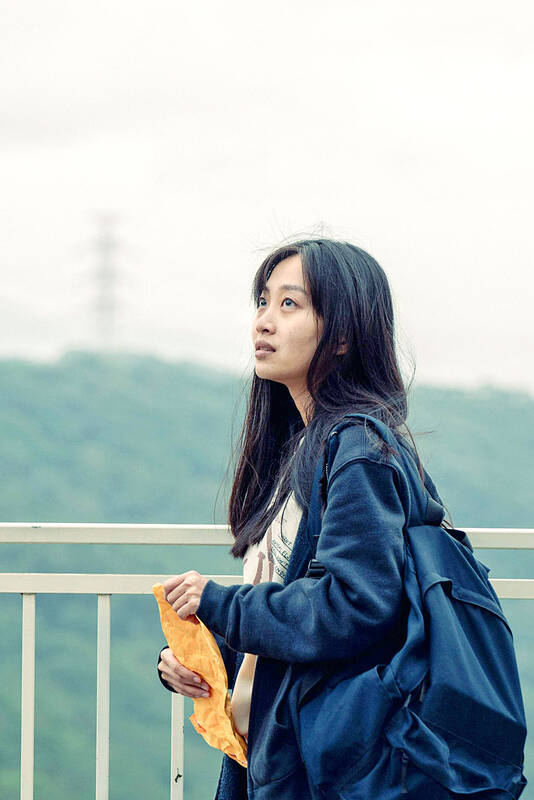A Better Place (留學生), a film exploring the increasingly blurred line between international students and migrant workers in Taiwan, was among the titles recognized at the first-ever Taiwan International Human Rights Film Awards.
The film follows two Vietnamese students, Ching-chun and Mei, who work at part-time jobs where they face exploitation and risk becoming undocumented workers in Taiwan.
It received the top prize in the Youth Category.

Photo courtesy of Public Television Service
An award ceremony was held on Sunday at the Chiang Kai-shek Memorial Hall in Taipei following the conclusion of the film festival.
The film’s Malaysian director, Ben Oui, said he hoped to use the protagonists’ dual identities to provide a realistic portrayal of the daily struggles faced by people in similar situations.
The jury commended A Better Place for its in-depth portrayal of Taiwan’s deep-seated, systemic labor issues, the Ministry of Culture, which organized the festival, said in a statement on Sunday.
Meanwhile, The Taste of Pork Belly (五花肉) by director Sophie Suei (隋淑芬) bagged the top prize in the Open Category.
Edited by Golden Horse Award-winning veteran Liao Ching-sung (廖慶松) and starring Esther Huang (小薰) and Tuo Tsung-hua (庹宗華), the film portrays the 1960s White Terror through the eyes of a young boy discovering his parents’ grim secrets, the ministry said.
The jury praised its literary storytelling and nuanced female perspective, describing it as a “silent indictment of the times,” it said.
Oui and Suei would each receive NT$150,000 in prize money.
In her remarks, Deputy Minister of Culture Sue Wang (王時思) said the entries covered a wide range of topics, including the White Terror era and labor rights, to judicial justice, freedom of religion and immigration, highlighting cinema’s power as a medium for collective memory and dialogue on human rights.
“These are stories that can only be told on free soil like Taiwan’s,” she said.

The first global hotel Keys Selection by the Michelin Guide includes four hotels in Taiwan, Michelin announced yesterday. All four received the “Michelin One Key,” indicating guests are to experience a “very special stay” at any of the locations as the establishments are “a true gem with personality. Service always goes the extra mile, and the hotel provides much more than others in its price range.” Of the four hotels, three are located in Taipei and one in Taichung. In Taipei, the One Key accolades were awarded to the Capella Taipei, Kimpton Da An Taipei and Mandarin Oriental Taipei. Capella Taipei was described by

EVA Airways today confirmed the death of a flight attendant on Saturday upon their return to Taiwan and said an internal investigation has been launched, as criticism mounted over a social media post accusing the airline of failing to offer sufficient employee protections. According to the post, the flight attendant complained of feeling sick on board a flight, but was unable to take sick leave or access medical care. The crew member allegedly did not receive assistance from the chief purser, who failed to heed their requests for medical attention or call an ambulance once the flight landed, the post said. As sick

Minister of Economic Affairs Kung Ming-hsin (龔明鑫) yesterday said that private-sector refiners are willing to stop buying Russian naphtha should the EU ask them to, after a group of non-governmental organizations, including the Centre for Research on Energy and Clean Air (CREA), criticized the nation’s continued business with the country. While Taiwan joined the US and its Western allies in putting broad sanctions on Russia after it invaded Ukraine in 2022, it did not explicitly ban imports of naphtha, a major hard-currency earner for Russia. While state-owned firms stopped importing Russian oil in 2023, there is no restriction on private companies to

INDUSTRY: Beijing’s latest export measures go beyond targeting the US and would likely affect any country that uses Chinese rare earths or related tech, an academic said Taiwanese industries could face significant disruption from China’s newly tightened export controls on rare earth elements, as much of Taiwan’s supply indirectly depends on Chinese materials processed in Japan, a local expert said yesterday. Kristy Hsu (徐遵慈), director of the Taiwan ASEAN Studies Center at the Chung-Hua Institution for Economic Research, said that China’s latest export measures go far beyond targeting the US and would likely affect any country that uses Chinese rare earths or related technologies. With Japan and Southeast Asian countries among those expected to be hit, Taiwan could feel the impact through its reliance on Japanese-made semi-finished products and